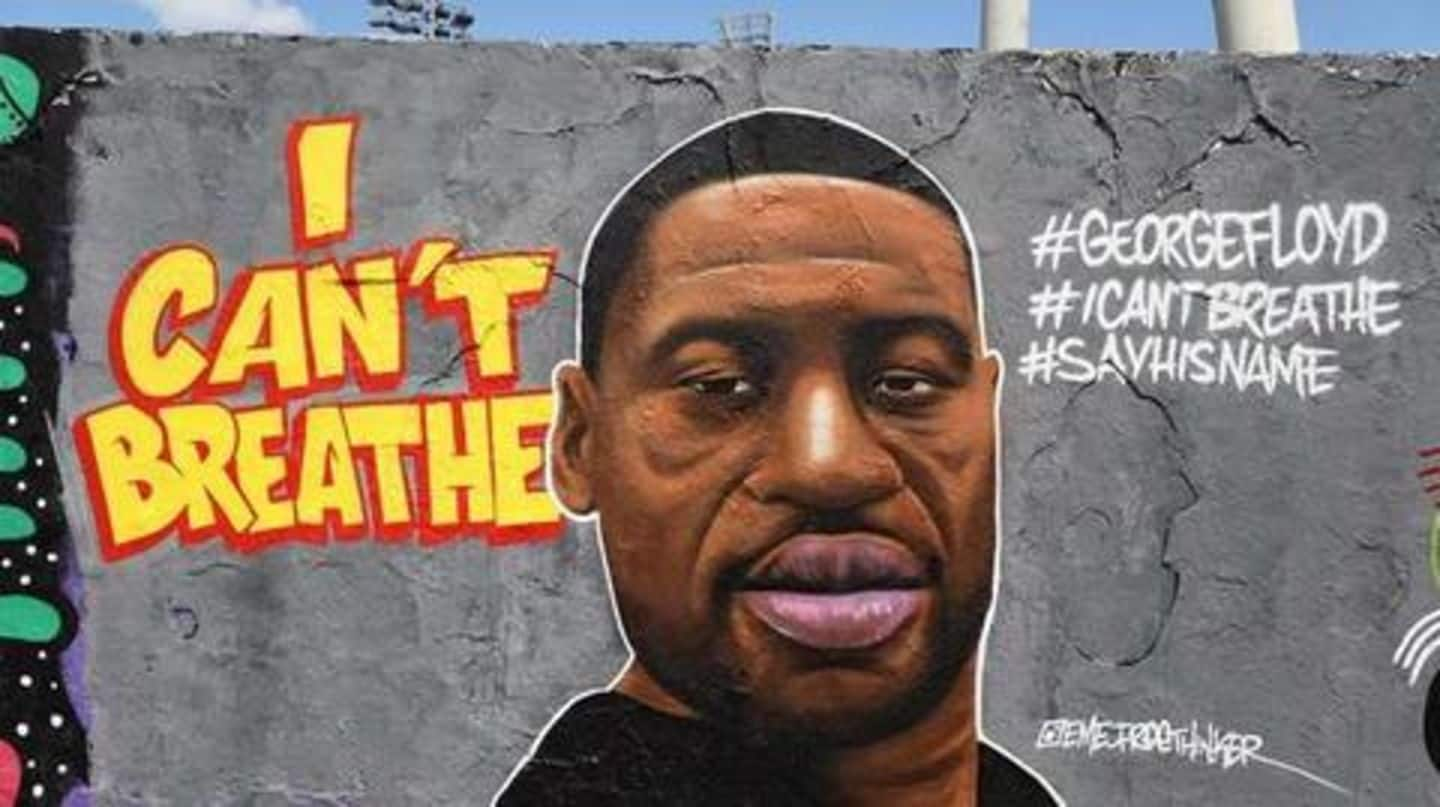
George Floyd death: Bail raised to $1.25m for accused ex-cop
What's the story
A former Minneapolis police officer charged with murdering George Floyd has had his bail at up to $1.25 million.
Floyd, a 46-year-old Black man, died on May 25 after the ex-cop, Derek Chauvin (44), knelt over his neck for almost nine minutes during an arrest.
The incident has reignited the 'Black Lives Matter' movement in the United States and other parts of the world.
Details
What happened in court?
On Monday, Chauvin made his first appearance in the Hennepin County District Court via video link.
Prosecutor Matthew Frank argued the charges against Chauvin and the public opinion against him make him a flight risk, The Star Tribune reported.
Frank asked District Judge Jeannice Reding to raise the bail amount from $1 million to $1.25 million, and conditional bail from $750,000 to $1 million.
Bail conditions
What are the conditions for bail?
Reportedly, the conditions for bail include: that he remain law-abiding, that he not have any contact with Floyd's family, that he not work in law enforcement or security, that he surrender any firearms and licenses to carry, that he remain in Minnesota under court supervision, and that he sign a waiver of extradition upon his release.
Chavin's attorney did not object to the conditions.
Backstory
Floyd died after Chauvin knelt on his neck
On May 25, Floyd died after Chauvin knelt on his neck for almost nine minutes. Floyd was being arrested for allegedly buying cigarettes with a counterfeit $20 note.
Videos of the incident, where Floyd can be heard complaining "I can't breathe," went viral.
He was declared dead at a hospital a short time later. His death has been ruled a "homicide" by medical examiners.
Case
Chauvin, 3 other cops, were sacked and charged
After the incident sparked a massive uproar, Chavin and three other officers involved—Thomas Lane, Tou Thao, and J Alexander Kueng—were sacked.
Chauvin was charged with third-degree murder and second-degree manslaughter. A second-degree murder charge was added later.
The three others have been charged with aiding and abetting both second-degree murder and manslaughter.
The next court hearing has been set for June 29.
Information
What is the punishment for these charges?
A second-degree charge under Minnesota law is defined as unintentionally causing another person's death in the commission of a felony offense. The charge can carry a sentence of up to 40 years. Aiding and abetting second-degree murder carries the same maximum punishment.
Protests
Protests erupted; calls to disband police department grew
Floyd's death sparked intense protests against police brutality and systemic racism.
At several places, the demonstrations had escalated into violence with reports of arson, looting, rioting, etc., that led to curfews.
Minneapolis City Council members also supported calls to disband the city's police department entirely.
According to a tentative agreement, the Minneapolis Police Department will ban officers from using chokeholds and neck restraints.